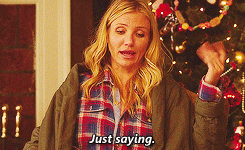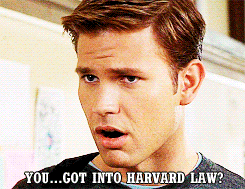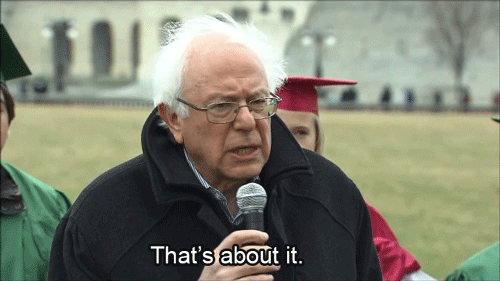People call our generation apathetic, and maybe that’s fair. According to U.S. News, only about half of us vote in presidential elections, and midterm elections…don’t make me laugh. Simultaneously, we’re the same group who’s blowing up social media with political opinions. While you have every right to vote for whom you choose, being ignorant should never be an option. Choosing to do nothing, choosing to know nothing and choosing to learn nothing are all active choices that you make. Before you craft a tweet worthy of Tosh.0, get educated.

So, the election. First of all, it’s still pretty far off, so all the candidates I’m going to talk about will have ample time to screw up, drop out, fall behind or pick up steam way before you pick up a ballot. However, the fact that it’s far away doesn’t stop anyone from flipping out about it because if the U.S.A. loves anything—other than pie, baseball, football, NASCAR, guns and our armed forces—it’s elections.

As of now, there are 17 Republican candidates and 5 Democratic ones, but I’m only going to really discuss the ones that I believe are electable. Quick statistic: The last time a president who hadn’t served in public office was elected, the year was 1850 and the president was Zachary Taylor. Also, fun fact, there’s only one other president in the history of the United States who hadn’t held public office prior to his election; his name is George Washington (ever heard of him?), and he was the General of the Army of the United Colonies. What, like it’s hard?

I’m going to go ahead and say that the people running for president in 2016 without experience in public office haven’t got a prayer. Sorry Ben Carson, Carly Fiorina, Donald Trump, and anyone hoping to read about Donald Trump in this article—he’s not invited to the party. People always wax poetic about how they’re tired of electing politicians, but in my eyes, the tides show no signs of changing.
Now, before you jump all over me saying that my logic is flawed because “just because something hasn’t happened in a long time (or ever), that doesn’t mean it can’t happen again (or for the first time),” let me explain. People are becoming more educated and therefore more demanding of qualifications when it comes to their chosen elected officials, which decreases the likelihood that we will jump back over 100 years and decide that experience doesn’t mean anything anymore. On the other hand, though a woman has never been elected President of the United States, the gradual rise of women’s rights in this country leads me to believe that a woman being elected is more likely than it was 50 years ago.
However, I don’t think that woman will be Hillary Clinton for a couple of reasons. First of all, this isn’t the first time Clinton was the frontrunner in a presidential election; it happened in 2008, and her campaign basically collapsed, so who’s to say history won’t repeat itself (as it so often does)? Secondly, people perceived a certain lack of transparency from Clinton regarding Benghazi. I don’t have time to discuss that here, but feel free to peruse the 3 million hits on Google when you search “Hillary Clinton Benghazi” — see what I mean about having no excuse to not be informed?
Trust is a big concern when electing a president, and even though it’s practically guaranteed that all presidents will keep secrets from the general population once elected, citizens’ perception of a candidate’s honesty is still crucial. Now, Clinton is still without a doubt the most qualified candidate running for president, and she has a huge support base. In the end, though, I think a negative public opinion of Clinton (which her competition has already begun to focus on) will prevent her from calling the White House home again.
Trustworthiness, or lack thereof, will plague several candidates, particularly Chris Christie. If you don’t remember “bridgegate,” Google “Chris Christie Bridge” and read one of the 2 million results on this scandal. Its repercussions, among other issues, have caused Christie to lose favor in New Jersey, and it never looks good if a governor is disliked in his native state.

Aside from being trustworthy, candidates strive to appeal to minorities and a younger demographic, so the last thing they want is to represent the past more than the future. Anyone who ran in 2008 or 2012: Rick Perry, Mike Huckabee, Rick Santorum and Hillary Clinton, runs a huge risk of not appearing representative of the future. George Pataki and Jim Gilmore, who have been out of politics for a decade, will also struggle with this problem. With so many candidates, it’s hard to imagine that people will turn to the past when they cast their ballots.
The past isn’t simply a time period, but a school of thought. To illustrate the point, let’s take presidential hopeful and my personal favorite maniac in the race, Ted Cruz. He’s the son of a preacher-man (an excellent song by Dusty Springfield, highly recommend) and unfortunately, positive associations pretty much end right there. Cruz supports the death penalty, doesn’t believe in global warming, thinks we should increase oil drilling in the United States, is against gay marriage and seeks to repeal the Supreme Court decision to legalize it, thinks abortions (even those to save the life of the mother) should be illegal, wants to repeal the Affordable Care Act, advocates for closing the birthright citizenship “loophole” (excuse me while I go vomit) and my personal favorite, wants to abolish the IRS.
Of course, some candidates seem to have a real fighting chance. Bernie Sanders is totally killing it. The importance he puts on addressing economic inequality is great, and his views on social issues are liberal. He represents the future and is less of a politician than his peers, which gets him a big check in the pro column. He may be a little too far on the left for certain voters, but he is electable and will appeal to younger voters and the middle class.

I also think Lincoln Chafee has a shot as someone who is opinionated without being extreme. Martin O’Malley is also looking good to me for similar reasons, plus he’s the only candidate (besides Scott Walker) to actively address the U.S.’s heroin epidemic, a problem that’s being overlooked because everyone is so hung up on legalizing cannabis. Jim Webb’s got some good ideas, but I’m not sure he has the fan base to win. Jim Gilmore has been out of the political arena for too long, but I think he is far more palatable than other Republicans. Another good Republican is John Kasich, who is probably too moderate for those very far on the right, but could appeal to Democrats as well.
Now, trustworthiness, modernity and my own support are nebulous attributes of a candidate. The clearest (and arguably best) lens to view candidates through is the political issues that will arise in debates. To learn more about what these issues are and how they will impact the impending election, check out Part Two of this article.




















